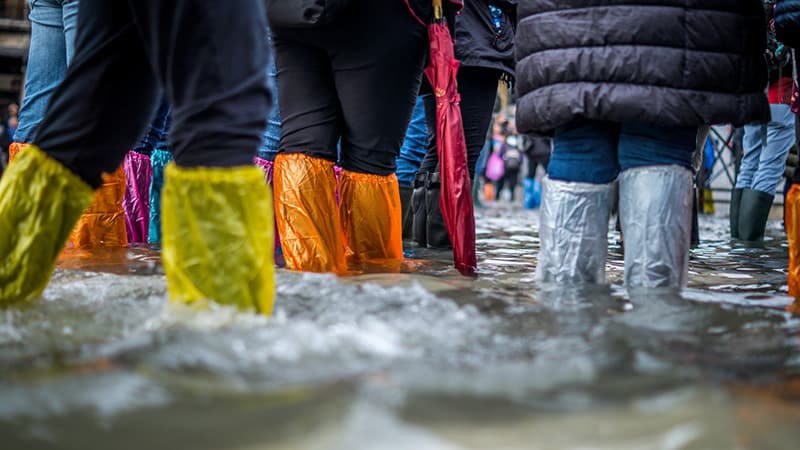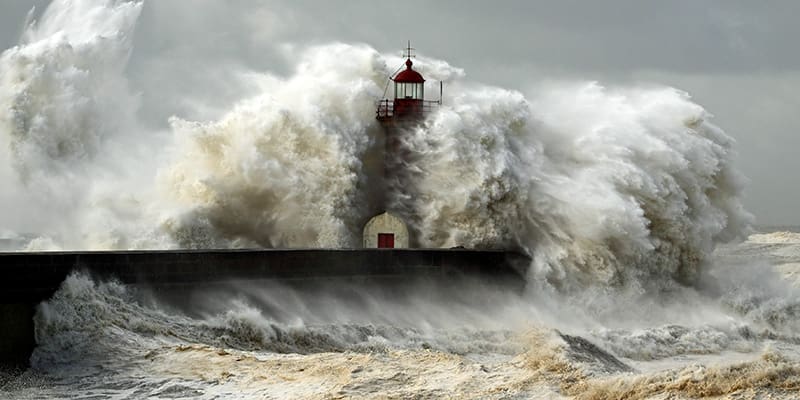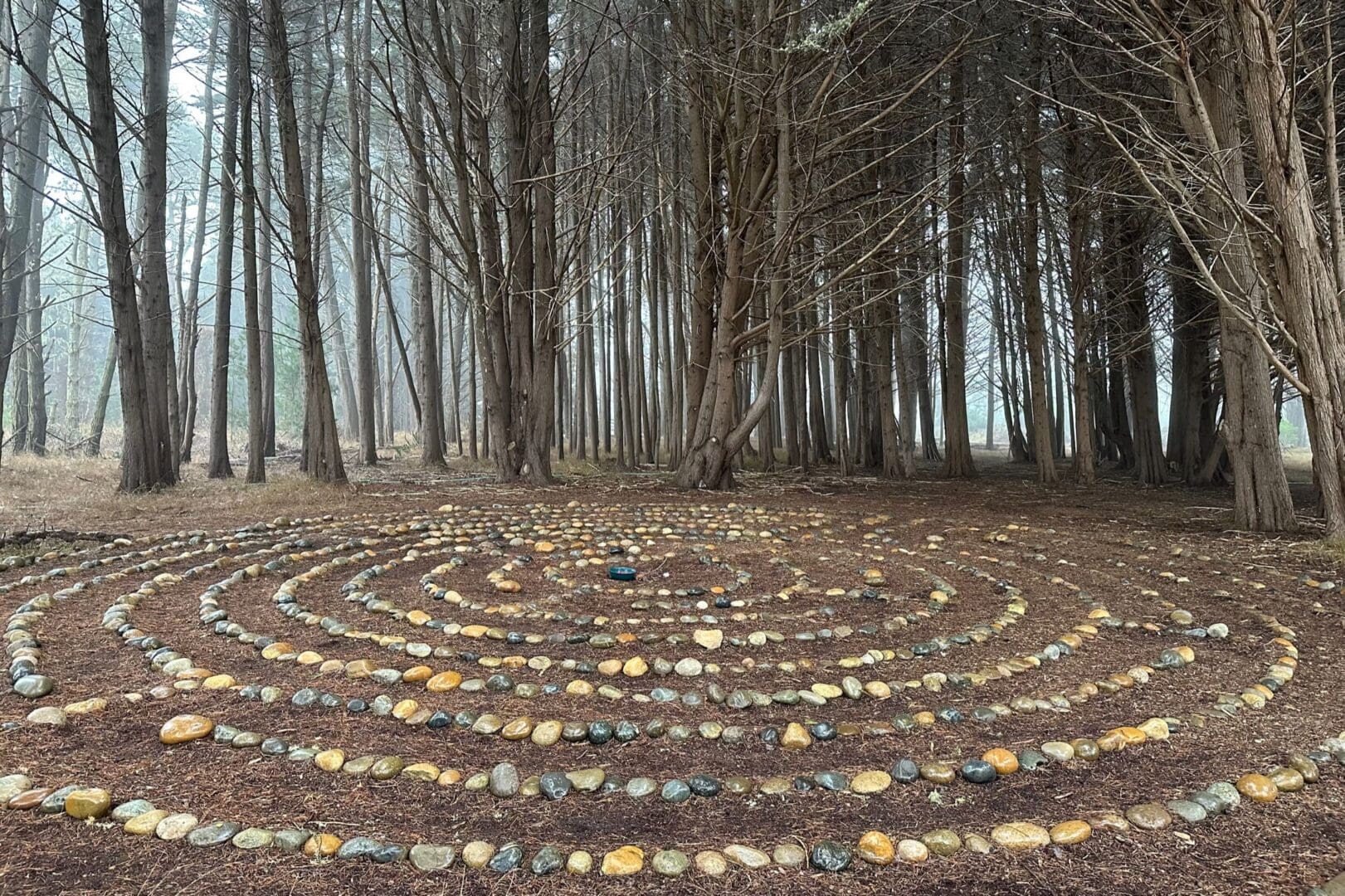Dear Friends:
I’ve been writing to you repeatedly about life in the global polycrisis. We’ve played a small part in surfacing the concept of the polycrisis as a way of understanding our times. Briefly to recap: the polycrisis is the sum total of all the environmental, social, technological, financial/economic, and (I would now add) natural stressors at work in the world today. These stressors are interacting unpredictably and with ever greater force to create future shocks of ever greater power and frequency.
And, to repeat, there will be no single name or narrative about the polycrisis because it looks so different depending on who you are, where you are, and what matters to you. My core analogy now is that the polycrisis is like a global interactive weather system. Local weather is different everywhere but all the local weather systems are part of a dynamic and rapidly changing global weather system.
What I want to underscore in this note is the strengths and limits of the polycrisis as a concept and as framing language. I do believe it is playing a useful role in recognizing that these global stressors act interdependently in ever more powerful ways. There is a big debate in academic circles about whether the polycrisis is actually something new in terms of systems dynamics or whether it is just history continuing to unfold. While I incline strongly toward the view that polycrisis dynamics does represent something new, we don’t actually have to take sides definitively in that debate, since the result is essentially the same—we all live in a transformatively chaotic world.
But the fact remains that in most parts of the world the polycrising language may or may not add to what people are experiencing. They may be experiencing war, or the breakdown of basic safety in countries ruled by criminal gangs, or a desperate need to migrate, or severe drought, or an oppressive dictatorship, or some other existential threat.
Consider all the Ukranians who fled the war but are now moving home despite the radical unsafety of doing so. Or a Haitian man who managed to get to Los Angeles with his daughter but found conditions there so desperate that he went back across the border to live in a church sanctuary Commonweal supports outside Tijuana with eight hundred other migrants and now considers it home.
Consider also all the microcosmic movements of people in the United States or the European Union. United States retirees moving to Mexico or Costa Rica so they can live on Social Security. Young families moving to less expensive cities because the communities they grew up in are now completely unaffordable. These “first world problems” may seem to have little to do with the reasons the Ukranians move home or the Haitian man decided he and his daughter are better off in a Tijuana church sanctuary than in Los Angeles. But in fact they are all interconnected expressions of the endless human search for places to live that are better than where we are.
But it’s not just a search for a home and a community. It’s the search for a way of making meaning out of what is happening. Consider the vast numbers of working class Americans who have come to believe that right-wing versions of reality express a deeper truth for them than the progressive versions of reality. Or Russian nationalists who, in the face of the terrible tragedy their country has embarked on, want to double down on defeating the Ukraine. The widespread if not global nature of profoundly different worldviews between what we label “right” and “left,” and how closely balanced the two sides so often are—so that elections when they exist are often tightly contested—is another expression of how hopeless it is to imagine that there will be one shared interpretation of the polycrisis.
Poll data is fascinating. The Gallup world poll on what young people’s current well-being says about their future is surprisingly upbeat, even for young people in low income countries.
On the other hand American optimism that young people will be materially better off has dropped dramatically.
Happiness also varies sharply by country. “There are large differences across countries. According to the most recent figures, European countries top the ranking: Finland, Denmark, Iceland, Switzerland and the Netherlands have the highest scores (all with averages above 7). In the same year, the lowest national scores correspond to Afghanistan, Lebanon, Zimbabwe, Rwanda and Botswana (all with average scores below 3.5).” What this suggests is that, in the face of the polycrisis, Scandinavian and northern European developed countries are the most resilient while countries in acute crisis are, naturally suffering the most.
You might expect that the happier countries would be less aware of the polycrisis. But, in fact, awareness of the polycrisis in various forms is quite advanced in many of the happiest countries. Polycrisis awareness may sometimes require enough distance from the acute crises to be able to have an overview. At the same time, we have colleagues in Argentina and throughout Latin America who are deeply aware of what they call “eco-social collapse.” And the French, never paragons of happiness, have a whole literature around what they call “collapsologie.”
There is a strong literature that supports the premise that humans in general do not expect things to change radically, even when they are about to do so. It’s often the outliers who see collapse coming—and an even smaller number who prepare to be able to respond—and probably a smaller number still who get their preparations right since accurate prediction is almost impossible. And while we often think it will always be the privileged who come out on top in collapse, sometimes it is the young, the hardy, and those accustomed to living under polycrisis conditions who may be the survivors in some circumstances.
If we are not among the billions of people living in various states of chronic or acute crisis—and yet we see the very high probability that the world as we know it is transforming before our eyes—a fundamental question is how we live, for ourselves and for others, at a time when everything continues to change around us and even in our own communities.
I have come to believe that I have afforded too much weight to the techno-optimist position, if by that I mean the view that we’ll work our way through this to a better future for people and planet. I have more sympathy for the techno-optimists who believe that humanity is a transient expression of the future and that a trans-human Singularity lies ahead (Ray Kruzweil’s brilliant vision of “Singularity—when humans transcend biology”).
I’ve spoken before of a “Game of Thrones” future in which competing power structures of different kinds compete for resources and dominance. The players I would expect to emerge will likely be states or proto-states in combination with corporations, non-state actors like criminal gangs, and so called terrorist or liberation forces, local centers of resilience, and an endless state of hybrid terrorism and warfare.
I believe that over time some of these forces may emerge to create some kind of new world order, whether based on spheres of influence or even some global structure of order. I will be gratefully surprised if this new order is either humane or supportive of safe and decent lives for human beings as we now exist in our unreconstructed complexity: our loves, our fears, our hopes, our cruelty, and our greed.
Still, in the face of these dark visions, I hold and sustain my hope that by some grace humanity might emerge from these deep travails as a mature planetary and interplanetary species devoted to healing ourselves and healing the earth. It is not paradoxical to me to hold both a dark vision of what lies ahead and a strong belief that the darkness and the great wounds of our time may open us to a consciousness of compassion, wisdom, and light.
You will make up your own mind about how best to live in these chaotic times. My vision is to do whatever I can to help people launch millions of arks all over the world to save whatever we can of nature and humanity. My hope is to fight wisely to save as much as we can for as long as we can—and to bend the arc of history toward earthcare and justice.
I see no contradiction between a dark vision of what we face and the hope to save what we can and build a better world.
Courage. It’s the most interesting way to live.
Michael Lerner



